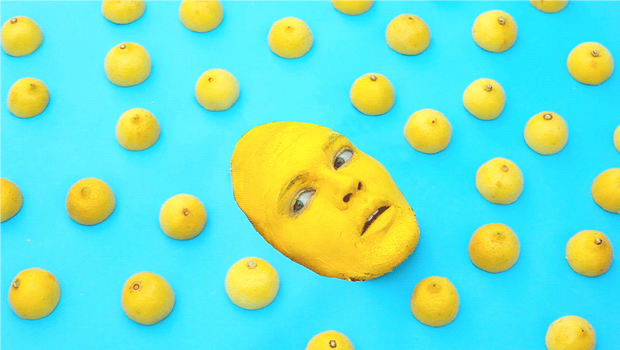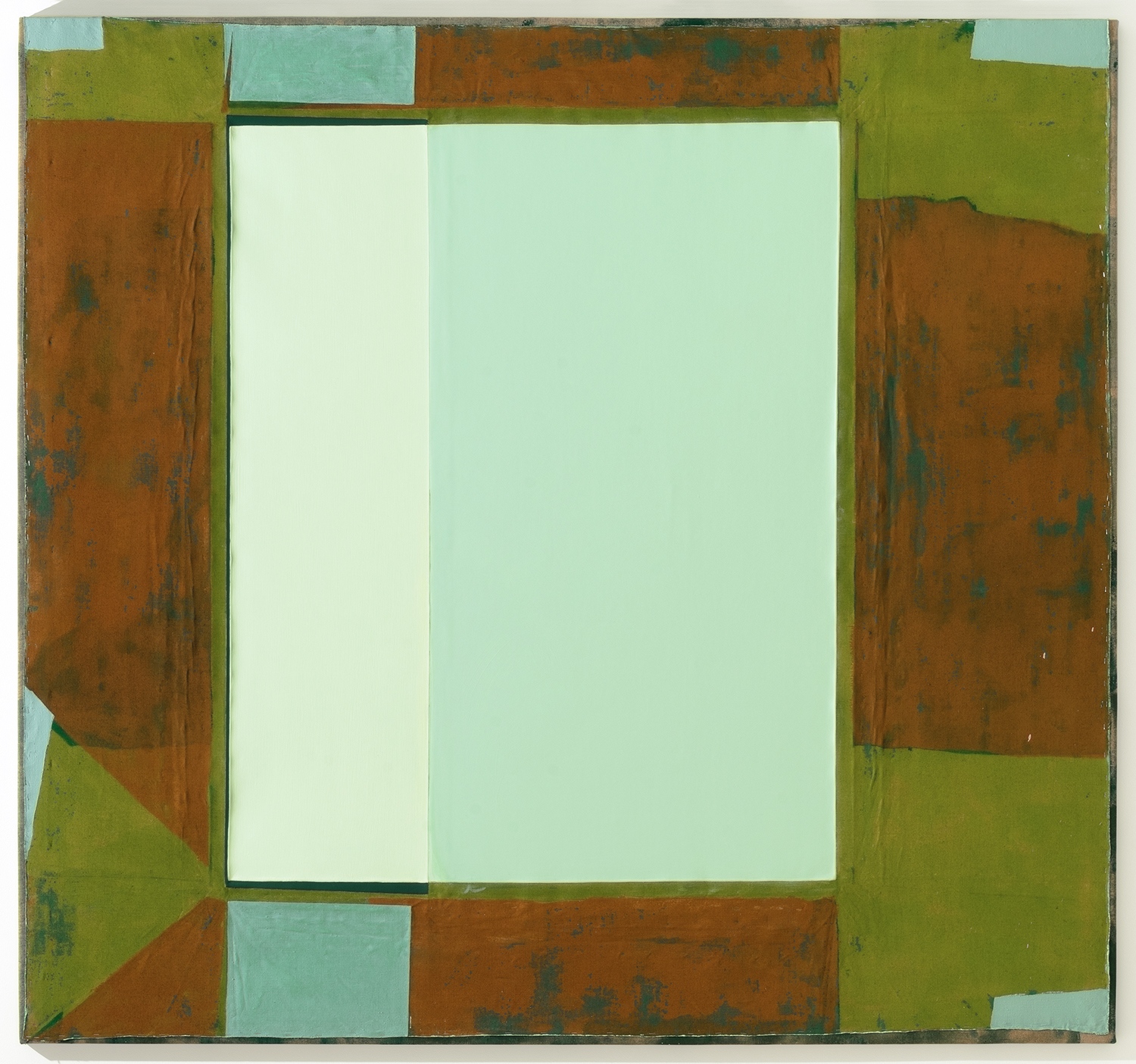Digital America interviewed Jenna deBoisblanc in November 2021 about her work Yosemite (2021) and internet culture.
:::
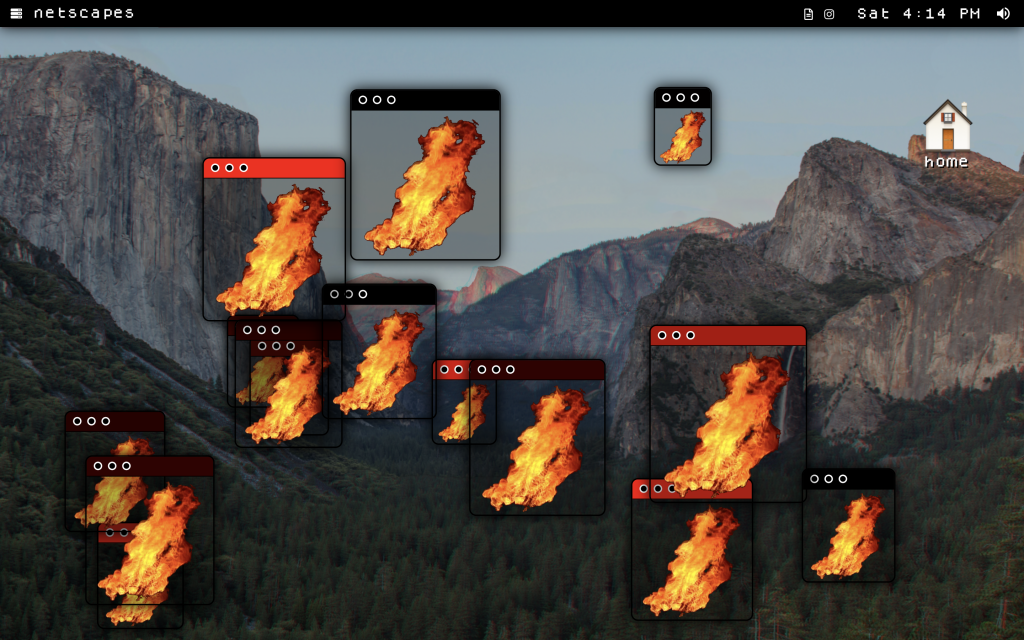
DigA: Your undergraduate degree is in physics, and you have a master’s in digital art. Does your background in hard science inform your work? If so, how?
Jd: Absolutely. Physics gave me an endlessly expressive computational toolkit that forms the bedrock of my artistic practice. As an undergrad, I fell in love with Arduinos and programming languages. These new technologies facilitate interactivity, world-building, and simulation and offer another route to understand, reflect upon, and critique the world around us.
DigA: Your netscapes are brought to life through visuals and intriguing sounds, such as the crackling fire sound in “Yosemite.” What’s your process to develop a soundscape? What is the role of sound in your practice?
Jd: In “Yosemite,” the increasing amplification of crackling sounds serves to augment anxiety as fire pop-ups consume the browser. Beyond “Yosemite,” however, I must admit that sound is a relatively new consideration in my work. Sound (at least for hearing people) plays a large role in how we experience the world. Frequently my work centers around creating digital experiences that blur the lines between “real” and virtual, and for that reason, I intend to reflect more deeply upon how I might use sounds to play with, and manipulate, our perceptions of reality.
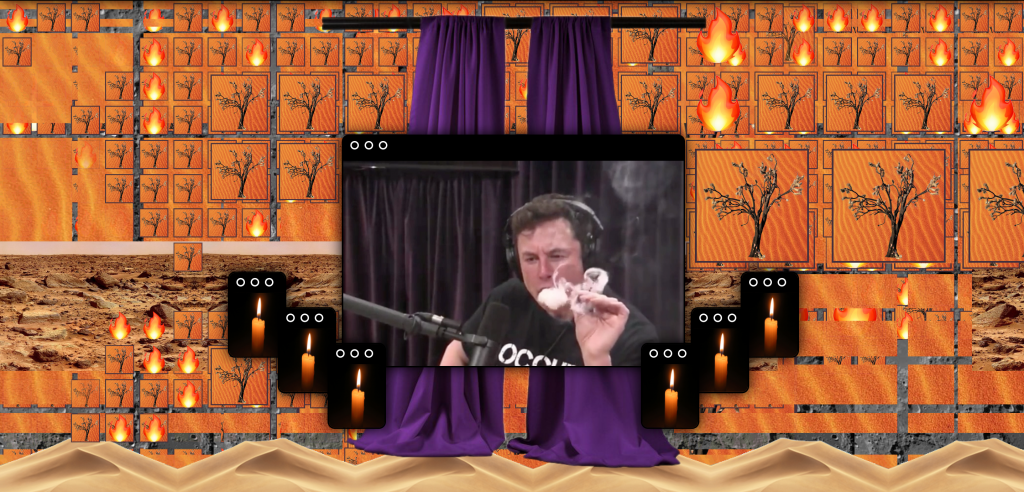
DigA: Your piece “Mojave” features a gif of Elon Musk smoking marijuana, and links to a Giphy page entitled, “Elon Musk Weed Gif.” You also note that many of your works seek to explore late-stage capitalism, a loose term that denotes heightened inequality within ubiquitous consumer culture (with some revolutionary spirit). How do you define late-stage capitalism? Do you see a role for internet meme culture, including the idolization of celebrities, in that definition?
Jd: Late-stage capitalism, to me, refers to the absurdity of unfettered consumerism in the context of a world plagued by increasing income inequality, structural racism, and an unfolding climate crisis. Roombas—which I usually find aimlessly bouncing under the couch, trapped by the edge of the living room carpet—serve as my visual metaphor in “⌘-X” for this economic era. The aimless, fatuous robots bounce around the screen, leaving behind another pointless anthropogenic invention: the American lawn. In “Mojave” I’m trying to critique the technofix, an ideology embodied (in my mind) by Elon Musk. I believe late-stage capitalism perpetuates this myth that more technology will solve our environmental problems.
As for internet meme culture, I’m hesitant to draw any definitive conclusions about whether memes advance late-stage capitalism, or whether they merely serve as a digital medium for any type of content. Take a scroll on r/LateStageCapitalism/, for example, and you’ll find memes deployed in the critique of $2000 steaks sold at restaurants paying workers $15 per hour…
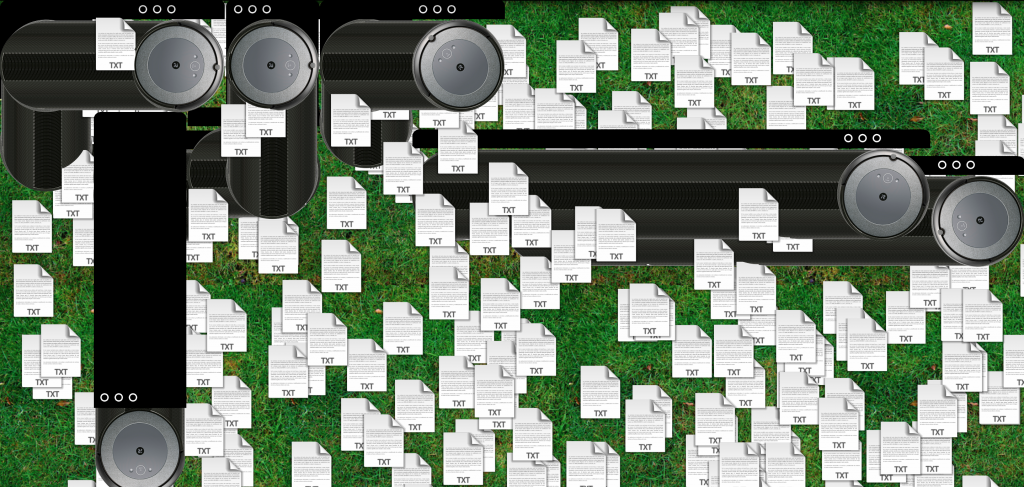
DigA: You state that your pieces are created with the intention to “arrive at a more responsible visual language for the web.” Can you talk a bit about what a “responsible visual language” means to you and how other artists might pick up the charge?
Jd: I am concerned that the rise of virtual reality and online worlds facilitate “digital escape,” by which I mean a willful departure from challenging realities in search of fantasy. Similarly, there’s something that really irks me about shipping generations of laptops with photoshopped, pristine desktop imagery of Yosemite at a time when wildfires ravage the West Coast. I don’t want to hamper imagination, creativity, or beauty; I do, however, hope that all creators of digital environments reflect deeply upon the ways in which the worlds we create help to obscure or foreground the environmental and social crises of our time.
DigA: Do you have any future projects that you are excited to share?
Jd: Do you have any future projects that you are excited to share?
I really see the work of Netscapes as the beginning of a longer, more in-depth exploration (both visual and academic) into virtual environments. In particular, I’m interested in examining how the white cube exists online (e.g. online galleries). I look forward to creating new work that explores questions such as: what social and economic barriers (for example, systemic racism) prevent access to the art world, and how do these barriers operate online? Hopefully, I will have more to share in the next few months!
:::

Jenna deBoisblanc is a net artist, new media artist, and teacher from New Orleans, LA. She received her undergraduate degree in physics from Pomona College (Claremont, CA) and her MFA in digital art from Tulane University (New Orleans, LA). She has shown work at local galleries in New Orleans (The Front, Good Children), as well as at light festivals in the Southwest (Luna Fête, Light Up Albuquerque). Her clients include Toyota, the Aloft Hotel, the Florida Aquarium, and NASA.

